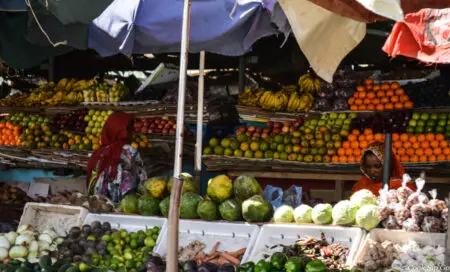- Africa’s new dawn: the rising role of digital and AI in agriculture
- Can Dangote Refinery Transform Africa Energy Ambition
- Gallup Survey: 80 per cent of Kenyan Workers Are Disengaged and Seek New Opportunities
- Madagascar Man Freed from 5KG Tumor After 15-Year Struggle
- How women in Africa are perceived and treated
- Sugar consumption in Kenya to Increase to 1.23 Million Tonnes
- Can Somalia and Turkey Oil deal Bring Change in Somaliland
- Remittances to Kenya dropped to $371.6 million in June, marking a six month low
Browsing: Finance
- The 3.9 million Euro donation will go towards the World Bank’s MSME Business Development Project in Djibouti, which provides MSMEs business support
- It is believed that barely 5% of the Djibouti’s formal firms receive bank financing
- Financial institutions, public institutions, and MSMEs-supporting programmes are among the intermediate beneficiaries
The World Bank and the European Union Delegation in Djibouti signed an Administration Agreement on behalf of the European Union to help Djibouti’s Micro, Small, and Medium-Sized Enterprises grow (MSMEs).
The 3.9 million Euro donation will go toward the World Bank’s MSME Business Development Project in Djibouti, which provides MSMEs with services such as digitisation, improved accounting procedures, credit applications, business planning, and legal and marketing strategies.
It will also help create a virtual “one-stop-shop” where MSMEs can apply for permits and other services all in one spot. The European money will be channelled through the MENA Regional Umbrella Multi-donor Trust Fund …
The case for investment in Africa is compelling. At no time before in history has the continent formerly and perhaps harshly referred to as the dark continent been so promising in terms of its economic potential.
The continent has been home to some of the fastest growing economies in the world. The continent according to research conducted by Standard Bank Group published in a report titled “Infrastructure Financing in Sub Saharan Africa for Institutional Investors”, states that in the last decade there have been 4 notable trends in Africa:
1. A larger, younger, and more affluent population
2. Africa’s transformational urban swell
3. Technological advances that have caused the continent to leapfrog
4. A deepening financial sector
These four trends have acted as structural drivers of Africa’s renewed economic promise. Over the last 10 year, specifically between 2010 and 2019 the collective economy of Africa grew by 55%. In monetary …
Because outside of the governments, politicians, civil servants, lobbyists and pressure groups that thronged the Conference there is a cohort of entrepreneurs that are passionate about reversing climate change, that have fantastic commercially viable and innovative ideas, but who require funding and strategic support to make these ideas a reality.
And so I want to suggest that as well as taking personal responsibility for our carbon footprint and doing all that we can to minimise our negative impact on Planet Earth, we should also be investing in line with environmental, social and governance principles at all times – and ensuring that 20% of our investments in 2021/22 should be directly targeted at investments that will have a positive environmental impact. …
Litigation finance is one of many asset types available across the world.
According to a report released by RPC in March 2021, the total value of court cases in the pipeline and cash assets directly held by UK litigation funders hit a record high of £2 billion last year. It indicates continued growth in demand for litigation financing by claimants, hoping that this figure will continue to rise.
As the world becomes more liberalized, litigation financing becomes more prevalent for claimants with genuine domestic lawsuits and international arbitration concerns. Therefore, understanding litigation finance is more important than ever for legal counsel, claimants, and investors. At Investment Owl, we hear many of the same questions from potential investors approaching litigation funding for the first time.
What is Litigation Financing?
Litigation financing entails a third party paying for some or all of the legal fees associated with one or more court cases …
Egypt maintained its Gross Domestic Product (GDP) growth rate at 3.6 per cent during the last fiscal year (FY) 2019/20, despite the economic challenges presented by the pandemic, according to Egypt’s Minister of Finance Mohamed Maait.
The minister’s remarks came during his participation in virtual meetings organised by Bank of America during the International Monetary Fund’s (IMF) fall meetings.
Minister Maait said that Egypt was able to reduce its deficit–to-GDP ratio to 7.9 per cent in FY 2019/20, compared to the 8.2 per cent recorded in FY 2018/19.
At the end of June 2020, Egypt also achieved a primary surplus of 1.8 per cent despite the negative repercussions caused by Covid-19.
He also added that in the same period, the country was also able to reduce its debt-to-GDP ratio to 87 per cent compared to the 90.4 per cent recorded in the same period in 2019 and 108 per cent …








